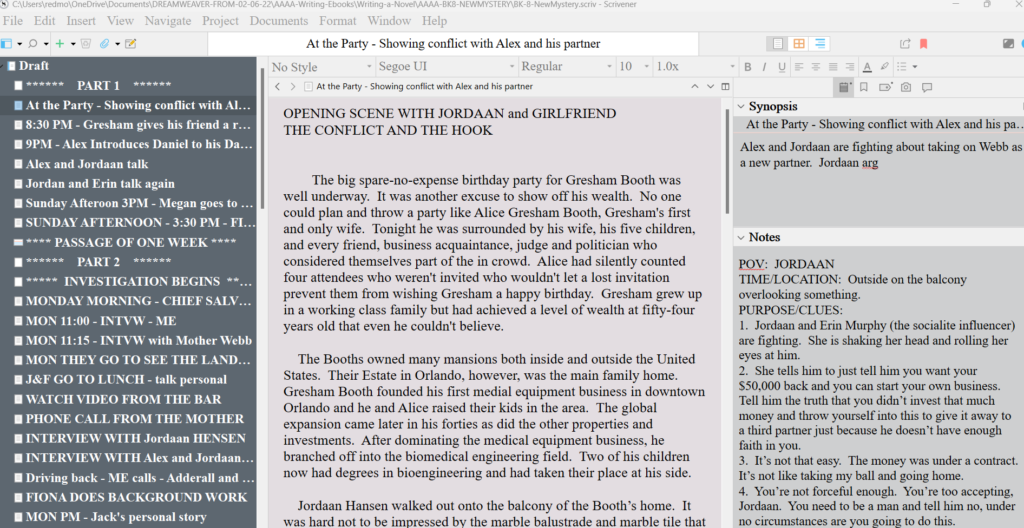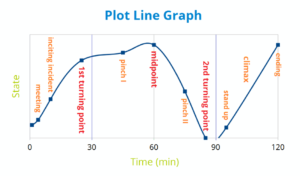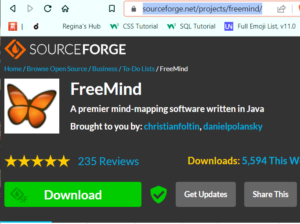PEEK BEHIND THE NOVEL
I’m in the weeds!
 I am knee-deep in Level 4 of writing the next book in the Jack Nolan Detective Series. I thought this would be a good time for me to take a break and reflect on what happens when I’m ‘in the weeds’ writing a novel.
I am knee-deep in Level 4 of writing the next book in the Jack Nolan Detective Series. I thought this would be a good time for me to take a break and reflect on what happens when I’m ‘in the weeds’ writing a novel.
Even though all writers have a different writing routine, I would venture a guess that most of us feel some of the same fears and face some of the same obstacles.
STARTING A NOVEL IS EASY:
 When you first sit down to write a novel, everyone is filled with enthusiasm and creative energy. It’s exciting. It’s new. But as the manuscript begins to grow, before it feels finished — or even ready to be polished, it feels cumbersome, heavy, and overwhelming. At least for me it does.
When you first sit down to write a novel, everyone is filled with enthusiasm and creative energy. It’s exciting. It’s new. But as the manuscript begins to grow, before it feels finished — or even ready to be polished, it feels cumbersome, heavy, and overwhelming. At least for me it does.
FEAR OF FAILURE:
Even though the story and plotline felt great at the beginning, there comes a point where a fear of failure sets in. Am I going to be able to finish this? Does this plotline even make sense? What happens if this storyline is not that great? Maybe this mystery isn’t enough. Maybe the dots are not going to all connect.
It’s possible to get paralyzed by a fear of failure at any point during the writing of a novel. It’s not a one-and-done operation. No one sits down, starts writing, finishes writing and ta-da, there’s a book. Writing a novel doesn’t work that way. It’s a long process. It’s a multi-layer process.
When these fears pop up, and they will, it’s important to remember that many writers feel these doubts and fears. It’s important to remember that everyone of us fails at something at some point in our lives. The good news is any novel can be redone, re-written, revamped, added to, or massaged in any number to go from mediocre to great. It’s a work of art in progress until it’s handed over to the publisher. Knowing this is empowering.
WRITERS BLOCK:
 Writers block is another common problem among authors. This often sets in after that initial period of excitement about the novel wears off. At some point the writing of the novel shifts into a project requiring some heavy lifting. There’s always a phase or two where the author has to tough it out. We have to keep at it.
Writers block is another common problem among authors. This often sets in after that initial period of excitement about the novel wears off. At some point the writing of the novel shifts into a project requiring some heavy lifting. There’s always a phase or two where the author has to tough it out. We have to keep at it.
It’s important to know ahead of time that writer’s block may set in at any time while you’re writing. I find that deciding to just sit down and go over what I’ve written ‘to get my place’ or to ‘get into the flow of it’ is enough to get over any writer’s block. Just by sitting down and starting to read through it, the project recaptures me. Even on days I feel I have nothing in me, I can suddenly be pulled into writing before I even know it’s happening. If you can commit to look at your project for fifteen minutes, this can be enough to recapture your enthusiasm.
LACK OF TIME:

Many wannabe authors have busy lives and don’t have a lot of time to devote to writing. There are certain years — especially in a parents’ lives –where raising kids is more than a full-time job. But where there is a will, there is a way.
There are ways to steal away an hour or two in any given day. It does, however, always require some level of planning. Don’t be afraid to plan writing time into your day and give it a higher priority than ‘the back burner’. Even if you are a parent or a caretaker, pursuing your own dreams is important. It keeps you engaged in life. It makes you a better parent. It can even make you a better day worker. Think of your writing as your own personal mission in life.
PERFECTIONISM:
Perfectionism can be another stumbling block for authors. Everyone wants to write a masterpiece. But at some point, you need to also know that nothing in life is perfect. Don’t let your ideas of perfect get all wired into your ideas of excellence. They are two different things.. If you looked close enough, you could find a few imperfect brush strokes in the Mona Lisa. If you read Harry Potter enough times, you may catch a plot hole or two. It’s important to know the difference between excellence and perfection. One is doable and one is not doable by human beings.
FEAR OF REJECTION:
 Will my readers like the book? Will the book be good enough to get a literary agent? What happens if my book gets bad reviews? There are any number of fears of rejection that can cause us to stop writing. Decide ahead of time you won’t allow these fears to stop you. Like I said earlier, think of your writing as a mission God has given you. This is your life’s work, along with your other worldly responsibilities. Your writing could be an opportunity to pass on things you have come to learn in your life. That’s a purpose. Or maybe writing is a way for you to share the gift of storytelling that you know you were born with. That’s a God-given purpose. Whatever the reason, it’s important to not allow fear of rejection to get in the way.
Will my readers like the book? Will the book be good enough to get a literary agent? What happens if my book gets bad reviews? There are any number of fears of rejection that can cause us to stop writing. Decide ahead of time you won’t allow these fears to stop you. Like I said earlier, think of your writing as a mission God has given you. This is your life’s work, along with your other worldly responsibilities. Your writing could be an opportunity to pass on things you have come to learn in your life. That’s a purpose. Or maybe writing is a way for you to share the gift of storytelling that you know you were born with. That’s a God-given purpose. Whatever the reason, it’s important to not allow fear of rejection to get in the way.
SELF-DOUBT:
Self-doubt is a tool of the devil. It’s easy for any human to start thinking they aren’t perfect, so maybe they aren’t good enough to pull off writing a novel. And the reason I call it a tool of the devil is because it can start with just a tiny little insignificant thought of self-doubt. But it can snowball and get bigger and bigger and bigger.
During these times when I feel self-doubt, I think of my writing as therapeutic for myself. It’s something I’m doing for me, not for anyone else. Any fear of rejection that occurs, thinking I’m doing it for myself, it takes away any sting self-doubt may have. It removes any power it has over me. It turns the tables on this.
DISTRACTIONS:
 Distractions are one of the biggest obstacles to completing a novel. One reason is because life does serve up constant small and big emergencies that have to take first priorities in our lives. So an emergency distraction can throw a whole well-planned writing schedule up into the air in a heartbeat.
Distractions are one of the biggest obstacles to completing a novel. One reason is because life does serve up constant small and big emergencies that have to take first priorities in our lives. So an emergency distraction can throw a whole well-planned writing schedule up into the air in a heartbeat.
One of the weapons against distractions is get clear on what a real emergency is verses a situation that can take its place in your daily routine. You don’t always have to sacrifice your writing time just because someone else doesn’t have to wait or suffer a small inconvenience. Always ask yourself whether you have the right to protect your free time or whether you are dealing with a true emergency, a situation that requires you to replan in that moment.
Parents with kids can fall into a trap of giving up all their free time based on a constant stream of kid demands. Giving in to every child whim is not the definition of a good parent. Protecting your free time and expecting your child to work within your schedule is not bad parenting. It’s the sign of someone who is good at balancing their lives.
I learned a long time ago that I have to protect my free time as there are armies of people in the world who would harness me as a free resource in their lives. They would demand and expect that I do all the things they don’t want to do if I allowed it. We’re responsible to set our own boundaries with people, and that includes kids.
RESEARCH:
 Most novels require at least some research. The internet can be a blessing with research but it can also be a curse. It’s a blessing because the days of having to travel to a public library are over. It can be a curse because the research can suck you in and you can use up all your valuable writing time doing too much research.
Most novels require at least some research. The internet can be a blessing with research but it can also be a curse. It’s a blessing because the days of having to travel to a public library are over. It can be a curse because the research can suck you in and you can use up all your valuable writing time doing too much research.
The tip I would pass on to any new writer would be to not do the research until you have already laid down your plotline. This will avoid research for things that wind up on the editing floor, so to speak. Subjects or issues you you think may come up in the story may get cut as you firm up a plotline to fit within the space of a novel. There’s nothing more frustrating than looking back and seeing hours and hours of wasted research time.
Too much research can also lead to another problem and that is ‘information dumping’. That means that many authors can’t resist the opportunity to write into the story things they learned from their research that are not really relevant to the plotline. This may be fascinating to us as authors but it’s boring to readers if it doesn’t move the story line along.
EDITING THE BOOK TO DEATH:
 Another trap to finishing a novel is to get caught up in a never-ending edit of the book. This usually hooks in with perfectionism problem in some way.
Another trap to finishing a novel is to get caught up in a never-ending edit of the book. This usually hooks in with perfectionism problem in some way.
I break up my editing into stages so that each time I go through the book, I focus on only one thing. For example: The first edit is to check to make sure I have put my descriptions of locations and people in. The second time I go through it, I look at sentence structure and make sure the chapters flow without any time gaps. The third time I pass through, I look for verb tenses. The next level is looking for the words I like to use too much like okay and just.
By having a solo focus, it prevents you as the author from getting caught in changing everything all at once. This prevents you from being able to focus on anything.
THE PSYCHOLOGICAL TRAP OF FINISHING THE NOVEL:
 Once you complete a novel, there is a little sadness that sets in. This book is no longer your baby. It’s no longer your little pet project. Once you hand it off to an editor, it becomes a shared work, so to speak.
Once you complete a novel, there is a little sadness that sets in. This book is no longer your baby. It’s no longer your little pet project. Once you hand it off to an editor, it becomes a shared work, so to speak.
Very often, authors who have abandonment issues or fears of depression, they don’t like to end anything and that includes writing a book. When I hear people saying they took seven or ten years to finish a book, I’m astounded at what could have taken them so long. They kept the book as their little baby for an entire childhood.
My Peek Behind the Novel series is about writing in layers. I feel that writing in layers is a way filled with techniques that keep me writing, keep me on track, keep me on schedule, and allow me to complete the novel, no matter how much research it requires.
These are just a few of the obstacles that we, as writers, face when undertaking the writing and completion of a novel. If your goal is to write a novel, don’t give up on your dream. Keep writing, keep pushing yourself, and eventually you will complete your novel.

 Each new book requires a new plotline. I used to come up with a plotline and go with it. But I noticed I had a lot of insecurities as to whether it was good enough or whether I was choosing a plotline too soon.
Each new book requires a new plotline. I used to come up with a plotline and go with it. But I noticed I had a lot of insecurities as to whether it was good enough or whether I was choosing a plotline too soon. So I could tell the four plotlines was a working strategy going forward. The first time I did this, I opened a new Notepad document, plotted a crime and a potential storyline. When I finished, I named it the first potential plotline and filed it. Rinse and repeat. Sounds pretty straight forward, right?
So I could tell the four plotlines was a working strategy going forward. The first time I did this, I opened a new Notepad document, plotted a crime and a potential storyline. When I finished, I named it the first potential plotline and filed it. Rinse and repeat. Sounds pretty straight forward, right? Then in response to getting scattered, I just wrote all four plotlines in one document, but then I was overwhelmed by how long the document was and it wasn’t easy to see which plotline I was in. The Notepad has a tendency to return to the top when you flip out of it to check a spelling or anything. Ugh, I again went upside down.
Then in response to getting scattered, I just wrote all four plotlines in one document, but then I was overwhelmed by how long the document was and it wasn’t easy to see which plotline I was in. The Notepad has a tendency to return to the top when you flip out of it to check a spelling or anything. Ugh, I again went upside down.